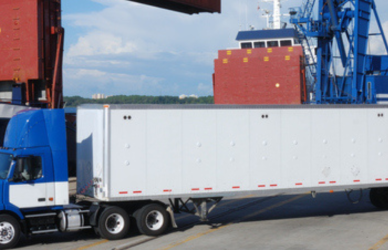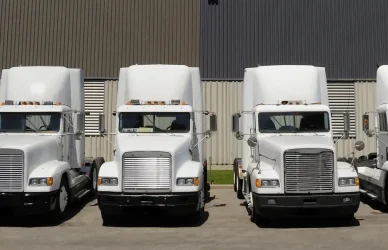While trucking plays a vital role in the nation’s economy, the industry has been grappling with a significant challenge – the shortage of qualified truck drivers. The solution to this problem might lie in a concept known as “finishing schools.”
Let’s talk about what finishing schools are and the role they play in uplifting the industry.
The Driver Shortage Dilemma
The trucking industry has been facing a shortage of qualified drivers for several years. This shortage can be attributed to factors such as an aging workforce, demanding work conditions, and a lack of interest among younger individuals in pursuing a career in truck driving. As a result, the industry has been in search of new solutions to address this ongoing challenge.
Enter Finishing Schools
Finishing schools, in the context of the trucking industry, are specialized training programs designed to bridge the gap between obtaining a commercial driver’s license (CDL) and becoming a skilled and confident professional truck driver. These schools focus on refining the skills and knowledge of new drivers, providing them with the necessary tools to excel in their careers.
Key Features of Finishing Schools
- Skill Enhancement – Finishing schools go beyond the basics of obtaining a CDL. They provide advanced training in areas such as defensive driving techniques, handling challenging road conditions, and efficient fuel management. This helps drivers become safer and more efficient on the road.
- Confidence Building – New drivers often lack the confidence required to navigate various situations on the road. Finishing schools offer hands-on experience and simulated scenarios, helping drivers build the confidence needed to handle real-world challenges effectively.
- Soft Skills Development – Truck drivers are not just responsible for operating vehicles; they also interact with clients, manage paperwork, and ensure timely deliveries. Finishing schools focus on enhancing communication and customer service skills, making drivers more well-rounded professionals.
- Industry Regulations – The trucking industry is subject to various regulations that drivers must adhere to. Finishing schools ensure that drivers are well-versed in these regulations, helping them avoid potential violations that could affect their careers.
Impact on the Industry
Finishing schools have the potential to revolutionize the trucking industry by addressing the driver shortage problem in the following ways:
- Improved Retention – Drivers who undergo comprehensive training in finishing schools are more likely to stay in the industry longer. Their enhanced skills and confidence contribute to greater job satisfaction and decreased turnover rates.
- Enhanced Safety – Safety is a paramount concern in the trucking industry. Finishing schools’ focus on defensive driving and situational awareness helps reduce accidents and incidents on the road.
- Elevated Reputation – Trucking companies that invest in drivers’ training through finishing schools establish a reputation for professionalism and excellence. This can attract more potential drivers to the industry.
The driver shortage problem in the trucking industry is a complex challenge that requires innovative solutions. Finishing schools have emerged as a promising remedy, offering new drivers advanced training, confidence building, and soft skills development. As the industry evolves, investing in these programs could alleviate the driver shortage and lead to safer roads, increased retention rates, and an overall improved image of the trucking profession. By prioritizing the development of skilled and well-prepared truck drivers, the industry can pave the way for a more efficient and successful future.











